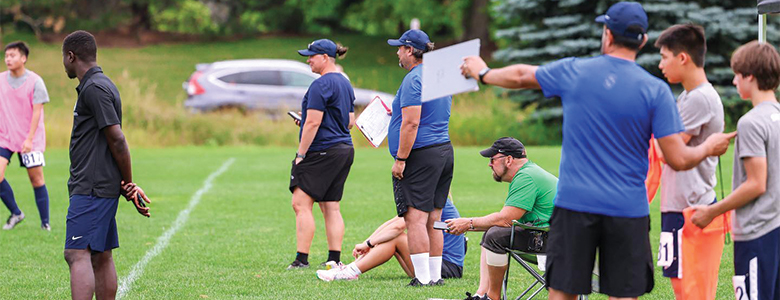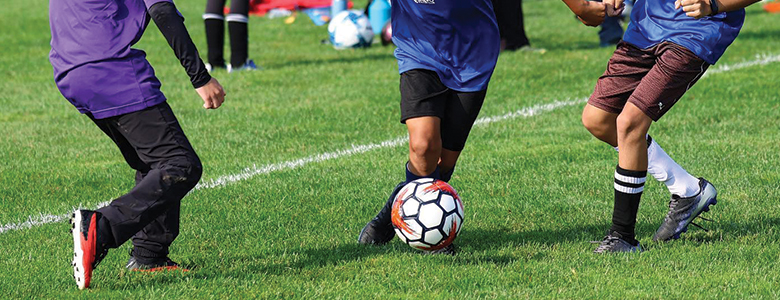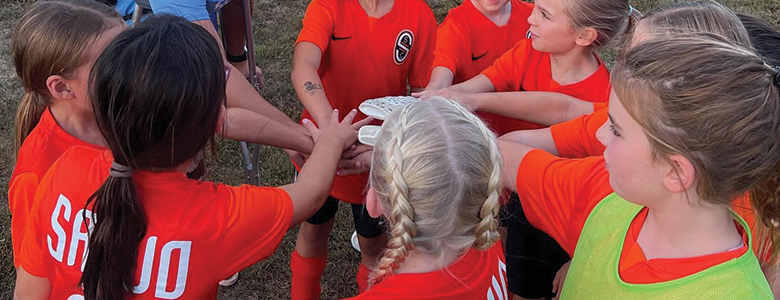Building a Winning Team: Strategies for Effective Youth Soccer Coaching

Youth soccer coaching is much more than drills and practices — it's an exercise in shaping young minds, fostering athletic growth, and instilling lifelong values. A great youth coach doesn't just guide children through the fundamentals of the game; they teach them communication skills, the value of teamwork, and how to handle success and failure.
This blog post is for dedicated coaches and parents who strive to create a positive and enriching soccer experience for the kids they mentor!
In this guide, Salvo SC shares strategies that are not only effective for strengthening your team on the field but also for empowering young players to become the best versions of themselves.
Setting the Stage for Successful Youth Soccer Coaching
For many kids, joining a soccer team is their first introduction to competitive sports. From recreational teams to travel leagues, it's where they learn the joy of scoring goals, the frustration of missing, and the excitement of coming together as a team.
As a coach, you have the unique opportunity to shape this experience and make it a rewarding one. Your role is influential, and with it comes the responsibility of creating an environment that fosters both personal and collective achievement.
Successful youth soccer coaching involves understanding the dynamics of your team, communicating effectively, and implementing strategic training methods. It's about more than winning games; it's about guiding young athletes as they grow, both as players and individuals.

Understand Your Players
Tailoring your coaching to the age of your players is crucial. Younger children need a focus on fun and fundamentals, while teenagers require more advanced instruction. Utilize age-appropriate training methods and keep the sessions engaging.
For specific techniques and coaching ideas that are innovative and age-appropriate while still focused on fundamental training, see our coach resources and feel free to contact our Salvo staff anytime.
Develop Individual Skills in a Team Context
While youth soccer is a team sport, it's essential to develop individual skills. Balance team drills with exercises that enhance a player's ability to dribble, pass, shoot, and defend. Each player's growth will contribute to the team's success.
A Play-Practice-Play training program is a great way to implement skill development and test players’ abilities to effectively incorporate the skills in team play.
Give Clear Instructions & Feedback
Be concise and constructive in your communications. This includes when coaching players at practice, giving instructions on game day, and when providing updates to parents.
Players should be able to understand what's expected of them and how to improve. Use positive language where possible and avoid focusing solely on mistakes. Give examples and explanations of how a player can improve or make plays differently.
Developing a strong relationship with your players and their parents fosters trust and commitment. Regular updates, positive phone calls, and one-on-one time with players can go a long way in building a supportive environment.
Foster Teamwork & Camaraderie
Organize team-building activities to strengthen the personal bonds of the players. From icebreakers and trust games to providing a little time for players to socialize, encourage your young athletes to support each other both on and off the field. A cohesive team is often a successful one.
Then, involve your team in setting achievable goals for the season. During practice, take time to write out what the team as a whole wants to accomplish and what individual players or positions want to do during the season.
When goals are met, celebrate individual and team accomplishments with enthusiasm, providing positive reinforcement to keep motivation high. Bring special snacks to the practice after a winning game day or write a unique cheer whenever a player meets a goal.
Tactical Training & Game Strategies
When it comes to playing soccer and teaching the game to young athletes, our coaching materials and resources offer an abundance of tools, ideas, and methods to help you and players access their fullest potential.
As a coach coaching a winning team, it is about putting the “fun” in fundamentals and keeping morale high as players engage, learn, and practice.

Practice Activities for Skill Enhancement
Salvo SC focuses on using activities, not drills, to help players dribble, pass, and develop ball-handling skills. Our goal is to provide a training environment where the players are able to make decisions based on the situation that they are in, not get used to just running a straight drill or listening to their coach (or spectators) shout commands.
While a drill has a start and a finish with minimal decisions to be made in between, an activity provides multiple situations for players to make decisions. Plus, activities are often more fun and challenging than running drills, especially for younger players.
Focus on Physical Fitness
From speed and agility to strength and endurance, soccer at all levels requires athletes to continue developing their fitness levels. Practices should include strategies and activities that keep players moving to build their endurance and muscles.
Paying attention to physical fitness also means teaching players how to recognize when their bodies are tired, thirsty, and need to rest. Stop frequently for water breaks, take time to do proper stretching before, during, and after practice, and allow players to rest when they need to.
Balancing Competition & Fun
Competitiveness should be balanced with enjoyment. Maintain a fun and positive atmosphere so players are excited to come to practice and give their best effort.
Using engaging activities helps with that, but coaches also need to pay attention to fairness and make sure all of their players have equal opportunities to participate in activities, get ball touches, and work together as a team.
Handling Wins & Losses Positively
Teach your players to be gracious in both victory and defeat. Use victories as positive reinforcement and losses as learning opportunities. This will help them develop resilience and emotional maturity.
The more you can model good sportsmanship for your team, the better. Remember, the most important goal is not the number of games you win but the impact you have on the lives of the young people you mentor.
Strive to be a coach who teaches far beyond the soccer field, and you'll watch your players blossom into not just skilled athletes but confident, responsible individuals primed for success in all areas of life.

Join Salvo SC as a Coach or a Player!
Coaching a youth soccer team is both challenging and rewarding as you help foster a supportive community that ensures all players can grow on and off the field.
Become a coaching leader today, or sign your soccer athlete up for an exciting season in one of our many programs!
See all of our girls soccer opportunities and our boys soccer pathways, and don’t hesitate to contact our staff with any questions about coaching or our programming.